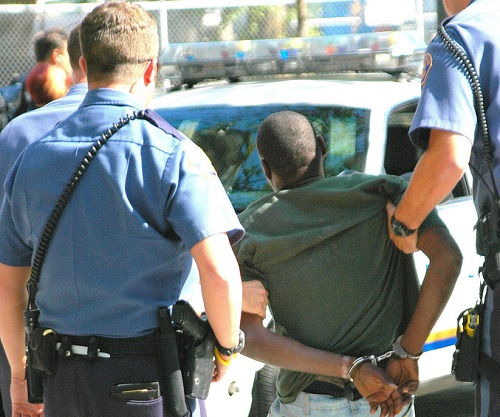The First Amendment Protects Your Right to Film Police Officers
The First Amendment to the United States Constitution states that Congress shall not make a law establishing religion, restricting free speech, or keeping people from petitioning the government. In other words, you have a right to practice whatever religion you choose, to speak your mind freely, and to peacefully petition the government.

As a result of a federal appeals court’s decision, the First Amendment is being expanded. In 2010, Carla Gericke was arrested for allegedly videotaping officers of the Weare Police Department after they pulled her friend over during a traffic stop.1
Although her camera malfunctioned, Gericke was still arrested on the spot. She was accused of obstructing a government official and unlawful interception of oral communications. Even though she was unable to record the incident because her cameras failed, the prosecutor proved that she was in violation of the law.
Carla sued the Town of Weare, the police department, and the officers who arrested her for violating her First Amendment rights. According to the First U.S. Circuit Court of Appeals, Gericke was, “exercising a clearly established First Amendment right when she attempted to film the traffic stop.”2
The Court of Appeals went on to say that in the absence of a police order to stop filming or leave the area, Gericke had every right to continue filming the incident. As long as you are peacefully recording the police performing his or her duties in a public area, you are well within your First Amendment rights.3
Many law enforcement agencies believe that citizens filming and recording them is interfering with their work. Knowing California’s laws regarding this controversial issue will help you avoid running into legal consequences when recording a video during a police encounter.
Do You Have the Right to Film Police Officers in California?
In the state of California, you are allowed to record police while on duty, but there are some restrictions. The first general rule of recording the police is to do so as openly as possible. If you try to do so by concealing your camera, you may be violating California Penal Code Section 647.
This law states that any person who uses a concealed camcorder to secretly videotape or record another person without their consent is committing a crime.4 As long as the audio or video recording is being done in a public place and you are not trying to hide it, you are within your First Amendment rights.
Even if you are recording an officer of the law in plain sight, he or she might still feel the need to confront you. If you are confronted, just explain that you are asserting your First Amendment rights. Make sure you are not interfering with police duties.
It is also important to take note of the state’s “anti-paparazzi” legislation. This makes photographing or recording anybody on private property a crime. If you are going to document police activity with your camera phone or other recording device, make sure you are doing it in a public area.5
Consequences of Secretly Recording a Police Officer
Under California Penal Code Section 647, audio recording or videotaping a police officer with a concealed camera is a misdemeanor. If found guilty, you could face up to one year in county jail and fines of up to $1,000.6
Call the Criminal Defense Attorneys at Wallin & Klarich Today

Ultimately, you should not be convicted of a crime for recording a police officer if it is done in a public and open setting. However, some police officers might unfairly arrest you for other more general offenses. If you are facing any allegations after exercising your First Amendment right to record a police officer, it is important that you seek help from an experienced and knowledgeable attorney. The attorneys at Wallin and Klarich have been successfully defending our clients accused of these crimes for over 40 years.
With offices located in Orange County, San Bernardino, Los Angeles, Torrance, Riverside, West Covina, Victorville, Ventura, San Diego and Sherman Oaks, our Wallin & Klarich attorneys are available to help you no matter where you work or live.
Call us at (877) 4-NO-JAIL or (877) 466-5245 to discuss your case. We will be there when you call.
1. [http://rt.com/usa/162272-police-film-appeals-court/]↩
2. [Id.]↩
3. [Id.]↩
4. [http://codes.lp.findlaw.com/cacode/PEN/3/1/15/2/s647]↩
5. [http://www.rcfp.org/reporters-recording-guide/state-state-guide/california]↩
6. [Id.]↩


